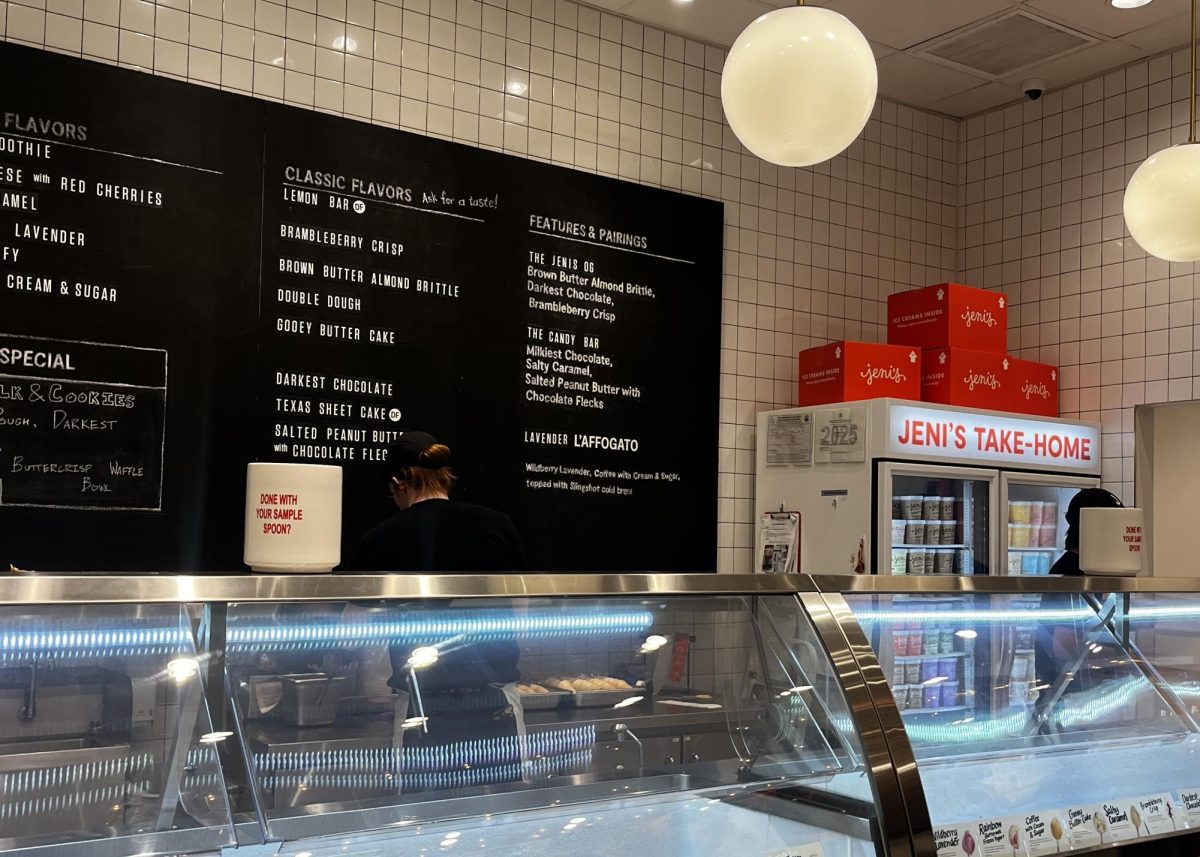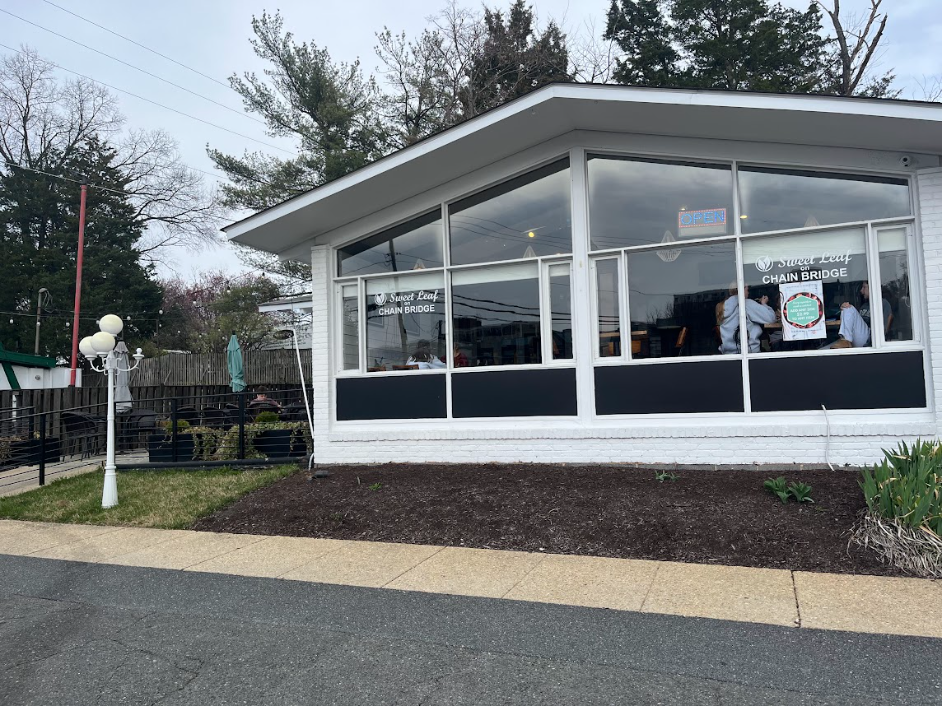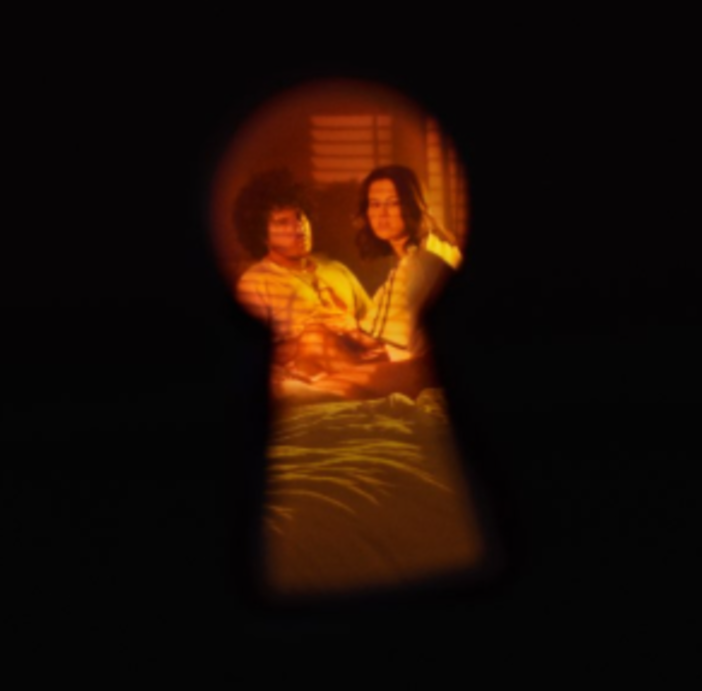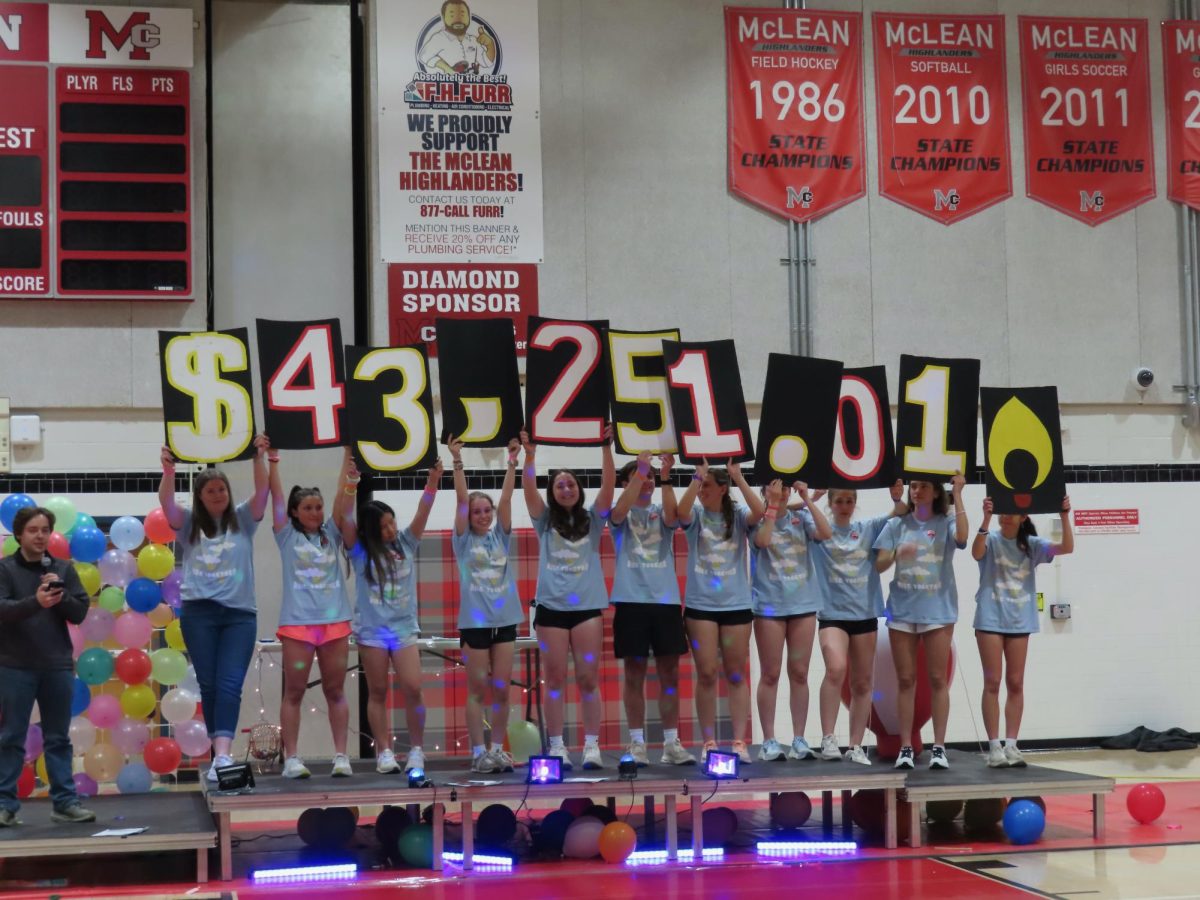Navigating the labyrinth of growing up, experiencing a breakup and embracing newfound fame, Filipino-British artist Beatrice Laus–known as Beabadoobee– executes the sonic experimentation of This is How Tomorrow Moves” perfectly. Released on Aug. 19, the artist’s third studio album is an expression of the artist’s candid feelings as she collaborates with American producer Rick Rubin.
The album opens powerfully with “Take A Bite,” an indie rock anthem that sets a reflective and raw tone for the journey ahead. The pre-release track, which samples “Drive” by Incubus, explores the conflicting feelings of seeking answers in a troubled relationship, as Beabadoobee acknowledges her own role in causing these problems. Reflecting the song’s message of finding love in chaos, the song carries a nostalgic vibe through its poppy rhythm and heavier melody. While the lyrics occasionally feel disjointed, the melody’s captivating charm and infectious energy make it a strong opener.
Beabadoobee transitions into an upbeat, grunge song reminiscent of many of her past works such as “Talk” and “Cologne”. In this song, “California”, she reflects on her career journey and unveils the internal struggles brought on by the busy lifestyle and stresses of touring. She reveals how constantly overworked the back-to-back shows make her. “California” gives us a glimpse into Beabadoobee’s life on the road, as she seeks comfort and a moment of rest. The strong rock sound conveys the intense emotions Beabadoobee lets out. The track mainly focuses on a heavy guitar riff, matching the complex lyrics and vocals of Beabadoobee in the song. California is definitely a standout selection and one of our top picks from the album.
“One Time” captures Beabadoobee’s reflections on past romantic turmoil as she discusses the ups and downs of avoidant relationships. The lyrics entail unhealthy coping mechanisms for these types of relationships. A sense of longing for more, even though Beabadoobee knows she should not. While the first half of the song felt somewhat repetitive and lacks the depth found in her other works, the bridge stands out as a highlight, offering a refreshing shift in emotion. The song ends a little abruptly, but through the accompaniment of an acoustic guitar and bass, it still leaves a lasting impression with its candid exploration of complex feelings.
The sonically upbeat yet somewhat melancholic tune of “Real Man” conveys Beabadoobee’s mixed feelings. She attempts to portray her betrayal, hurt and resentment from past relationships through her poetic lyricism. She describes her craving for new connection, while simultaneously struggling with the conflicted emotions love brings.
In “Tie My Shoes”, Beabadoobee opens up about her relationship with her father. She conveys her frustration with him, yet balances it with an understanding of his flaws and circumstances. The bittersweet melody of the song beautifully echoes Beabadoobee’s feelings of longing and sense of waiting.
Beabdoobee is no stranger to weaving gut-wrenching works of lyricism into her tracks, and “Girl Song” has immediately established itself as one of the greats. In the heartbreaking ballad, Beabadoobee reflects on her inner turmoil as she grapples with self-destruction. She delves into her struggles with body image, self-doubt and insecurity — feelings that everyone, but especially young women, resonates with. The simplicity of the piano instrumentals and the rawness of her vocals amplify the emotion embedded in her words. “Girl Song” draws to a close on a tragic, yet hopeful note as she recognizes her need to reach for help.
Written in the midst of her world tour for her second studio album, “Beatopia,” “Coming Home” is a short and soothing track that celebrates the appreciation of life’s small moments. The song continues the album’s recurring theme of homesickness experienced during her time on tour. The gentle melody is accompanied by an audio clip of Tinikling, a traditional Philippine folk dance and bamboo stick performance, as Beabadoobee pays tribute to her heritage and birthplace. The instrumentals evoke a maritime feel, blending cultural homage with a soothing sense of nostalgia.
Her second single off the album, “Ever Seen,” is a tale of self-discovery, delving into Beabadoobee’s internal struggles and the ultimate prevailing power of love in difficult times. Accompanied by the uplifting and dream-like sound of orchestral instruments alongside a powerful synth, the track is exhilarating as it is powerful — reflecting the themes explored in the lyricism of the song. As the first verse begins, Beabadoobee highlights her emotional “comedown,” the perpetual nature of her self-deprecating thoughts when she makes mistakes. As the song progresses, she finds power within herself to focus on the positive aspects of her life and emphasizes the support that her partner has provided in trying times.
Following the climactic outro to “Ever Seen,” comes “A Cruel Affair:” a groovy and nostalgic track on the complexities of self-comparison. The easy-going melody, reminiscent of the paradise/surf genre, juxtaposes the saddening, yet relatable theme of feeling inadequate in the modern world where it is easy to get caught in comparing your achievements, physique, and life with that of others. The lyrics, though simple, unveil the story of comparing oneself to other young women.
“Post” features a catchy melody and energetic guitar tune. Although it’s on the shorter side, the chaotic production and raw, unpolished vibe make for Beabadobee’s signature sound.
While the lyrics may seem fragmented and inconsistent at times, this is likely intentional. Beabadoobee describes “Post” as a collage of experiences from her and her friends, adding a layer of authenticity to the artist’s trademark style.
Lyrically, “Beaches” tells the story of the young artist as she ponders the next step of her career as a singer-songwriter. The distorted guitar and steady drum beat, accompanied by the subtle chimes and Beabadoobee’s soft vocals, give a sonically nostalgic twist to the song. “Beaches” begins as she opens up about the anxieties she had about collaborating with Rubin for the first time in his Shangri-La studio in Malibu. As the track progresses, it morphs into an anthem of hope for the future: stepping out of your comfort zone,not waiting “for the tide just to dip both your feet in” and giving your all to seize an opportunity when it is presented. The broad nature of the lyrics leaves room for listeners to apply and interpret the song to their own lives in unique ways. The heavenly sound of “Beaches” resembles a climactic end to a summer or the satisfying close to a coming-of-age film, where time stops, “days blend to one” and everything feels clear.
Beabadoobee shifts to a more delicate sound with “Everything I Want.” Featuring a gentle melody, the song unfolds a timeless love story as Beabadoobee candidly shares her pure and heartfelt emotions for her significant other. Comparing her partner to the sun, she conveys the importance of his presence in her life as she relays his warmth, comfort and reassurance. The short track serves as a sweet addition to the album.
Taking a detour from the themes of romance, newfound career trajectories and personal introspection reflected in the rest of the album, in “The Man Who Left Too Soon” she comforts her partner as he navigates grieving his late father. With an ethereal melody, the song’s sweet lyrics promise that all despairing feelings will eventually pass. She reassures her partner that although his deceased father may be physically absent, they can find solace in knowing that his loving memory will forever be commemorated every time they look at the moon. She ends on a graceful note, wishing she had been able to meet the remarkable figure who meant so much to her partner.
The closing track, “This Is How It Went” ends the album on a simplistic yet powerful note, as Beabadoobee ponders the hypothetical message she’d write to her ex-lover about the difficulties of moving on and seeking closure. “This is How It Went” serves as a sequel to her popular single “The Way Things Go”, showcasing Beabadoobee’s emotional growth as she sings “to heal, never writing songs to hurt [her ex].” Beabadoobee’s soft breaths and short staccato words, accompanied by a piano instrumental, vividly paint her emotional journey. “This is How It Went” presents a satisfying end to a breathtaking album, leaving listeners with a sense of closure and emotional resonance.
In “This is How Tomorrow Moves,” Beabadoobee takes us through her turbulent stages of heartbreak and rise to fame. The album leaves us excited for her upcoming North American tour, though some longtime listeners might find themselves missing the more alternative, rock-infused sound that defined her earlier music. Despite this shift, the album remains a strong addition to her discography, proving Beabadoobee’s ability to evolve while staying true to her authentic voice.





















